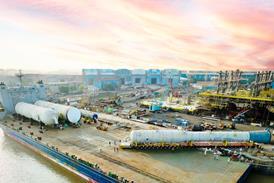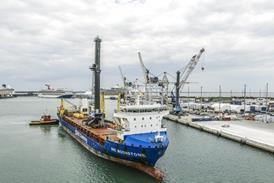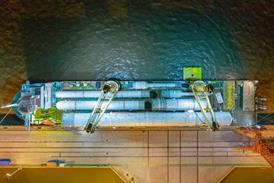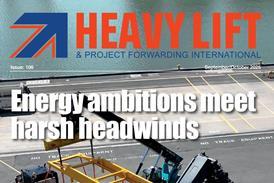A collection of shipowner associations issued a proposal to the International Maritime Organization (IMO) for an industry financed USD5 billion (GBP3.8 billion) research and development (R&D) programme. The associations hope this will accelerate the decarbonisation of the maritime industry.
The IMO greenhouse gas reduction strategy includes a target of reducing total emissions produced by the international shipping industry by at least 50 percent by 2050 compared to 2008 levels.
Emissions from shipping are already about seven percent lower than 2008. However, the shipping industry argues that, so long as ships remain dependent on fossil fuels and global demand for maritime services continues to grow, there is a limit to what can be achieved.
Potential renewable energy sources have been explored – such as hydrogen or ammonia – but these do not yet exist on a scale suitable for large ocean-going vessels.
The proposed R&D programme would be managed through a non-governmental organisation – an international maritime research and development board (IMRB). The board would be quasi-independent and its purpose would be to research and develop low and zero-carbon fuels, energy sources, and other emission reduction technologies.
The IMRB would be funded via contributions from shipping companies of USD2 (GBP1.50) per tonne of fuel consumed by every ship, which would be estimated to amount to USD5 billion (GBP3.8 billion) over a period of ten years. The co-sponsors of the programme emphasised that the contributions would need to be compulsory via IMO regulation.
It is understood that a number of governments have been positive about the proposal. The shipowners are calling on the IMO Marine Environment Protection Committee to support the establishment of the IMRB, citing that it is a “crucial vehicle for driving the progress needed to build a zero-carbon shipping industry.”
Lars Robert Pedersen, deputy secretary general at BIMCO said: “Now, we look forward to seeing the member states put weight behind their calls for action and advance our proposal, which can actually help the industry develop the technology needed to reach our decarbonisation targets.”
The international shipowner associations issuing this proposal are: BIMCO; Cruise Lines International Association (CLIA); The International Association of Dry Cargo Shipowners (Intercargo); Interferry; International Chamber of Shipping (ICS); International Association of Independent Tanker Owners (Intertanko), and the International Parcel Tankers Association (IPTA).
















